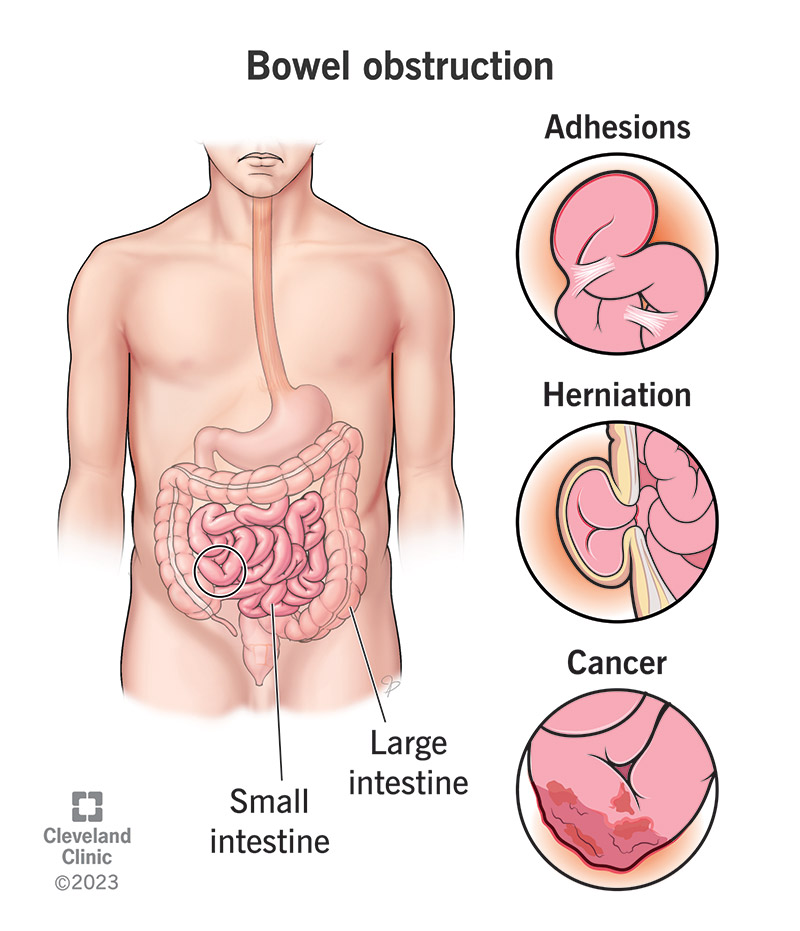欧博娱乐Bowel Obstruction: Signs & Symptoms, Cause
Overview

What is a bowel obstruction?
A bowel obstruction is a partial or complete blockage of either of your bowels — your small intestine or your large intestine. Your intestines move food and (eventually) food waste from your stomach to your rectum, which you pass as stool when you poop. An obstruction blocks your intestinal passageway, slowing movement or grinding digestive processes to a halt.
Advertisement
Cleveland Clinic is a non-profit academic medical center. Advertising on our site helps support our mission. We do not endorse non-Cleveland Clinic products or services. Policy
Waste, gas and digestive juices can get stuck behind the blockage, damaging the tissue. The blockage can prevent your bowel from working as it should, leading to dangerous complications.
With a bowel obstruction, time is of the essence. If you’re noticing symptoms of an obstruction, call a healthcare provider or get to an emergency department (ED) right away.
Types of bowel obstructionHealthcare providers classify bowel obstructions based on which intestine they affect:
Small bowel obstruction: Most obstructions (approximately 80%) happen in your small intestine. Your small intestine connects to your stomach at one end and your large intestine at the other. In addition to moving food and water along to your large intestine, your small intestine breaks down foods and absorbs water and nutrients from them.
Large bowel obstruction: Your large intestine includes your colon and rectum. It continues the nutrient absorption process that starts in your small intestine. It also transforms food and water into waste material you pass as stool. Large bowel obstructions account for about 20% of all intestinal blockages.
Bowel obstructions can also be:
Complete: A total blockage in the affected part of your intestine.
Partial: A partial blockage or narrowing of the affected part.
Pseudo: A “false” obstruction, where you experience the symptoms of a bowel obstruction when you don’t have one. Scientists believe pseudo-obstructions may be related to nerves glitching in your intestines, but they need to do more research.
Advertisement
How common are bowel obstructions?Small bowel (intestine) obstructions are a common reason people visit the ED.
Large bowel obstructions are uncommon in the general population, but they’re frequent among people with colon cancer. About 40% of people with colon cancer get diagnosed because bowel obstruction symptoms (from a tumor) prompted them to seek emergency care.